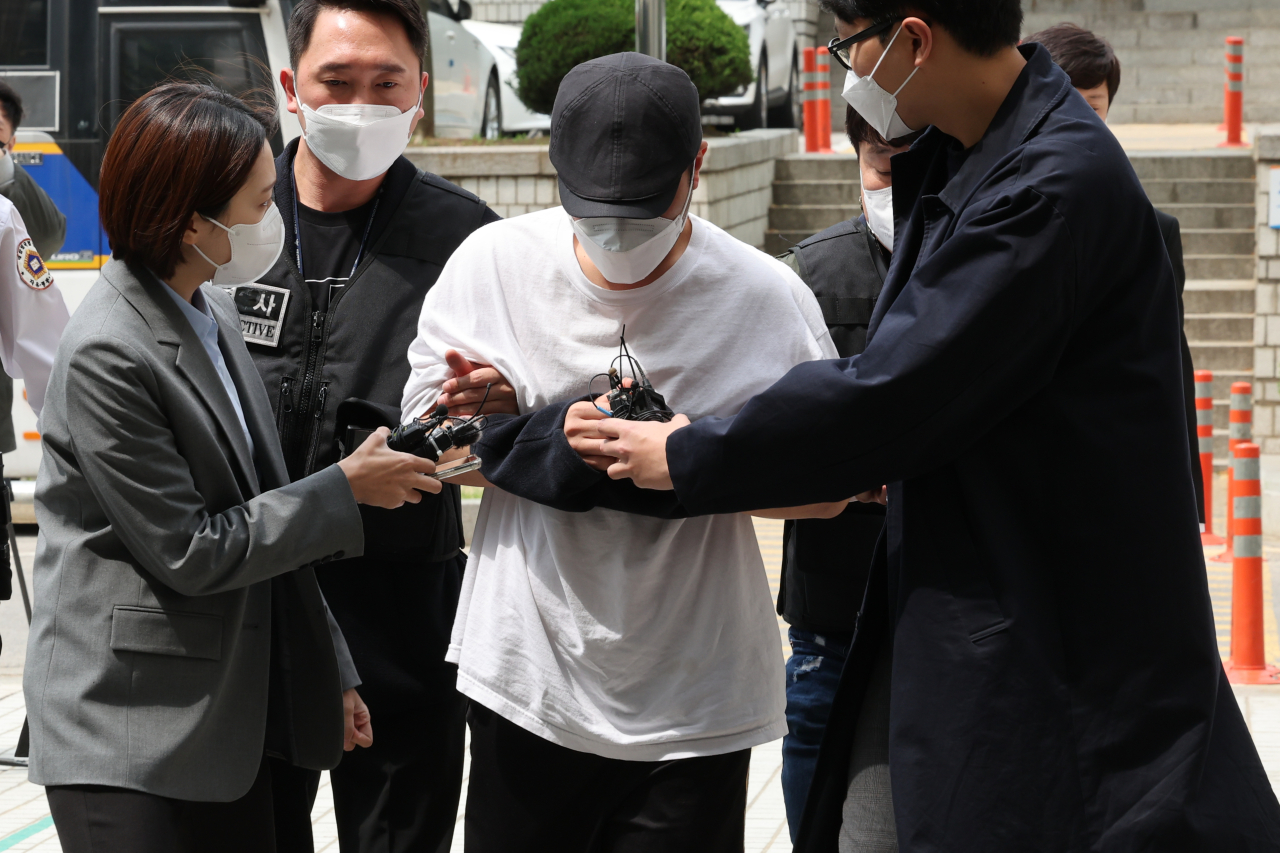South Korea’s financial authorities failed to notice a mammoth embezzlement scheme at a top bank here, in which an employee withdrew a combined 61.4 billion won ($48.84 million) from 2012 to 2018, despite carrying out 11 audits during the period, sources said Monday.
Police arrested the employee surnamed Jeon, who is in his 40s, last Wednesday mere hours after Woori Bank had reported the theft. Jeon -- who had worked at Woori Bank for almost a decade -- turned himself in.
The employee invested the stolen money in derivatives and aided his brother’s business tied to a golf resort development in New Zealand, police said. The employee took out a total of 61.4 billion won in three separate withdrawals -- in 2012, 2015 and 2018 -- Woori said in a regulatory filing Thursday.
Namdaemun Police Station on Monday raided Woori Bank headquarters in central Seoul and Jeon‘s home to search for evidence related to the embezzlement. They also raided the home of Jeon’s brother, who received about 10 billion won of the stolen money and was arrested Thursday as an alleged accomplice.
Prior to his arrest, Jeon reportedly tried to wire some of the money to his wife and daughter in Australia, but failed to do so after Woori discovered the plan.
The scandal drew swift condemnation from the public, who said the authorities and Woori Bank’s lax oversight allowed such massive embezzlement to go on under their noses for a decade.
The watchdog Financial Supervisory Service reportedly ran a total of 11 inspections and audits on Woori Bank from 2012 and 2018 when the embezzlement took place. In 2015, the FSS discovered a loan fraud case amounting to nearly 11.2 billion won that took place between 2008 to 2013 in Woori’s Tokyo branch, but Jeon’s embezzlement flew under the radar.
“We will definitely look into firms that have audited Woori Bank. I cannot understand how they missed the irregularities, either,” said Jeong Eun-bo, chief of the FSS.
Neither of the two accounting firms that audited the bank in the last decade had raised any red flags.
But the watchdog’s chief was wary of holding Woori Bank executives criminally liable for the theft, saying it would be too early to do so.
“If we find out they had been negligent, then it would be a different story,” he said.
In an email addressed to employees, Woori Bank CEO Lee Won-duk pledged to find out if there were any additional accomplices in the case and seek legal action if necessary. He vowed to rebuild customer trust, which the bank had failed to protect through the recent case.
“The embezzlement case came when Woori entered a new age after its privatization,” Lee said in the email.
“A single man’s evil intentions and selfish crimes have shaken Woori’s reputation and trust that our employees have built for a long time. We are currently investigating the matter and if there are any other accomplices, we will ask them to take severe responsibility.”
Woori Bank became technically fully privatized in November last year after the government sold its remaining shares in the bank to private investors and recouped some 897.7 billion won of taxpayers’ money it had funneled into the lender in the aftermath of the 1997-1998 Asian financial crisis.
The stolen 61.4 billion won was part of compensation Woori was set to pay Iran’s Dayyani Group over an investor-state dispute settlement in 2015.
Dayyani, the family behind Iranian consumer electronics group Entekhab, asked Seoul to return a $50 million deposit used for a failed bid to purchase a majority stake in Daewoo Electronics. In 2018, the World Bank’s settlement body ordered Korea to provide compensation totaling 73 billion won.
But the transfer of the money was on hold because of US sanctions on Iran. An exemption was granted to facilitate the transfer early this year, prompting a review of the accounts and the discovery of the theft that had gone unnoticed for a decade.
Authorities believe Jeon had managed to stay under the radar for the last 10 years by forging account records. Still, critics say the bank would have caught the theft much sooner had it put in place the appropriate internal and external oversight measures.
By Jung Min-kyung and Choi Si-young (
mkjung@heraldcorp.com) (siyoungchoi@heraldcorp.com)







![[Herald Interview] How Gopizza got big in India](http://res.heraldm.com/phpwas/restmb_idxmake.php?idx=644&simg=/content/image/2024/11/20/20241120050057_0.jpg)
